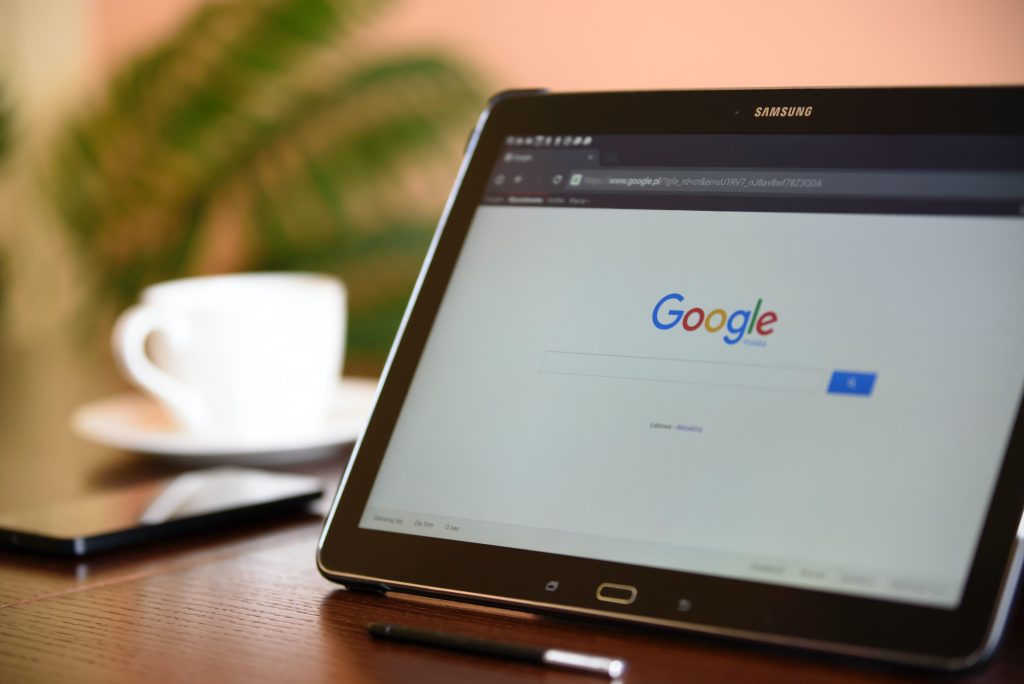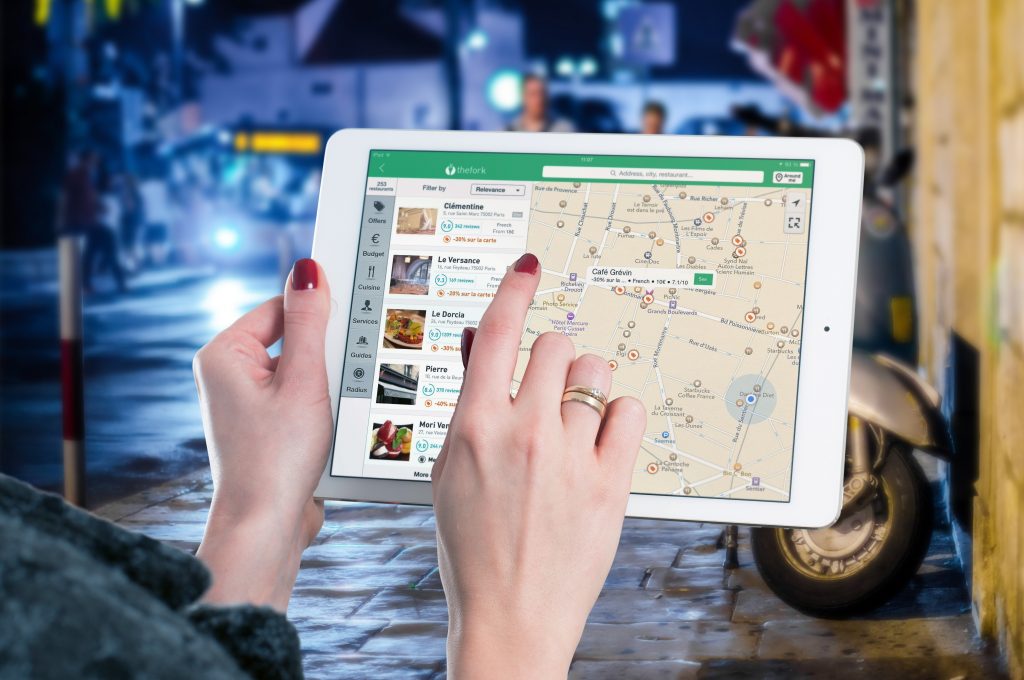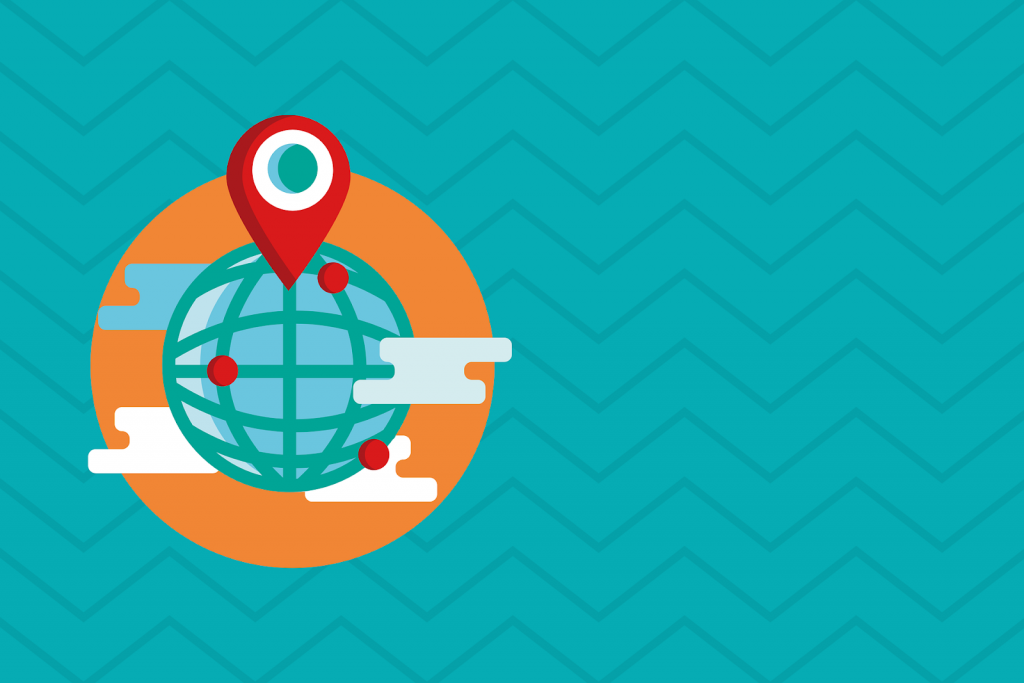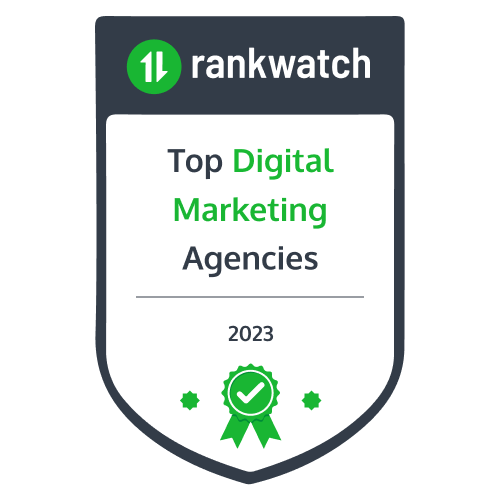If you own a local business, local SEO is something you should be paying attention to.
Local SEO optimises your website and online presence to rank higher in local search engine results pages (SERPs). Having a local SEO strategy can be beneficial for businesses with a physical location to help them attract more local customers.
The Benefits of Local SEO
There are many benefits to local SEO that you should know about. Here are some of them:
1. Increase Traffic: When you rank higher in nearby search results, you are more likely to get more traffic from local customers. This is because, generally, when someone searches for something, they are more likely to look at local than national listings. Therefore, it makes perfect sense to invest in local SEO to rank higher for local search results.
2. Target Customers: When you rank higher in the local SERPs, you will be able to reach more people interested in what you offer. This is because local SEO allows you to target customers in a specific geographic area.
3. Builds Credibility and Trust: Local SEO will help you build credibility and trust with potential customers. When people see that you are a local business, they will be more likely to trust you. This is because local businesses are usually more invested in their local community.
4. Cost-Effective: Local SEO is a very cost-effective marketing strategy. This is because it allows you to target a specific geographic area, which means you don’t have to spend as much money on advertising and marketing.
5. Stand Out from the Competition: If you’re not using local SEO, then your competition is. This means that if you want to stand out from the crowd, you need to invest in local SEO.
The Evolution of SEO – From Global to Local
If you think about it, today’s search engines are a modernised version of the Dewey Decimal System. But how did it evolve? It all started in 1990 with the first search engine, Archie, and many others came after that until 1998, when Google was finally launched.
Initially, no one thought that Google would dominate the search engine world the way it had over the past few years. There were so many like it since the ‘90s before we reached today.
By looking at the history and evolution of search engines, business owners and marketers can understand how to improve their rankings and stay current with Google’s upcoming requirements.
How Does Google Work?
Google is a search engine that crawls the internet for any piece of information. It has to “understand” what you’re asking got them and then deliver results back to you.
Crawlers are deployed to visit web pages to tell Google which web pages have been updated, which ones are no longer working, and also report discoveries of new web pages.
For search engine optimisation, you want Google bots to monitor and understand the content and value of your website to attract more people. In turn, this will lead to an increase in organic traffic and local leads for your business.
Put simply; Google works in a way that it gives users the most relevant search results. For businesses, Google is an essential marketing tool that puts them on the map and in the line of sight of their target customers.
Why is Local SEO Important?
Around 8.5 billion Google searches are done daily, and 46 per cent are made with local intent, meaning nearly half of the searches are local. With these statistics, it only makes sense to bring your focus to local SEO strategy.
Local SEO is the subset of search engine optimisation that focuses on increasing visibility in local results. This type of SEO is relevant for businesses in local towns to rank higher for local search terms.
For instance, when someone searches for a local business category on Google or Yahoo, they might type something like:
(Business name) or (Product) or (Service) in (area).
If these users don’t find your business or your website, it only means that it is not ranked on the results page, leading to them looking elsewhere or going to your competitor.
As a local business owner, your business needs to show up in the SERPs so people in the area can find you when searching for your product or service in that specific location.
On Google, the results are a combination of map results and organic results.
How Google Ranks Search Results
Every search engine and SEO strategy aims to provide the most relevant results for users.
Google ranks search results based on the following criteria:

- Relevancy: Everything Google does is to provide the most relevant results to its users based on their search queries.
- Authority: Google takes into consideration the authority of each page to rank it.
- Quality: Google considers the quality of the content of the page.
- Usability: Google ranks the usability of the content of the page.
- Social signals: Google considers the importance of the social signals of the page.
- Local relevance: Google considers the local relevance of the search query and the listing to serve the most relevant result to the user.
- Geographic location: Google analyses a search’s physical location derived from a browser’s IP address to filter out irrelevant results.
Does Your Business Need Local SEO?
If you’re a local business, then local SEO is something you should pay attention to. Optimising your business page for local search means businesses can position their products and services to local prospects and customers searching for them.
Here are some questions that can help you determine if location-based SEO is the right strategy for your business:
– Is your business location-based?
– How are your local search rankings?
– Do you want to increase your local visibility and attract customers in the area?
- Do you need a local search marketing boost?
- Are you lacking local citations?
- What do your business listings look like?
The Ranking Factors You Should Know About

There are more than 200 ranking factors that Google uses to determine search engine ranking. However, below is a local SEO checklist to help you with your local search marketing.
The Complete Local SEO Checklist
Google My Business (GMB)
An important local SEO ranking factor is a Google My Business Profile. The Google My Business platform allows you to publish, manage and edit your business information.
With GMB, your business information will be visible on the results page and help improve your local reach.
Setting up a GMB page is pretty straightforward—you can sign up via your Google account or create a separate GMB account.
On-Page Optimisation
On-page optimisation involves improving content to achieve higher rankings on search engine results. Based on a survey, on-page optimisation significantly impacted local rankings in 2021, which was 25 per cent.
Making it a priority this year will also be impactful, especially when ranking locally. An effective on-page SEO optimisation can make your website accessible to Google crawlers and indexers.
Here are some on-page optimisation tips you can do for your website:
– Optimise website URL structure to make it search-engine friendly
– Make website content readable by online users and bots
– Optimise page speed
– Ensure content is unique and relevant to your local audience
For more information about the website, you can go to Google Search Console to view your site’s performance.
Links
It’s not new to many that links are one of the most significant ranking factors, and they are extremely valuable for boosting organic search rankings and localised results.
Based on a 2020 Whitespark survey, inbound links are the eighth-most crucial factor that impacts the Local Pack/Finder results. Although getting quality backlinks can be challenging, they are worth it as they can significantly improve the site’s authority.
Continually assess the quality of backlinks you have on your site. Otherwise, bad links can harm your site rankings. There are tools you can use to check for the quality of backlinks, such as the MozBar chrome extension.
Google Business Profile (GBP)
GBP is a tool for local business owners to validate their business information on a prominent director. It can help business owners get their information searchable on Google Maps and search engine results.
By creating a Business Profile, business owners can show their local business listings with a map that appears alongside their business profile. Additionally, people can get directions to the business locations.
Businesses verified as “merchants” will have a special badge next to their business name, and this badge shows that the business is verified. Furthermore, Google will show a verified location if the searcher is searching for local sites.
Mobile Searches
More and more people are searching online using their mobile devices. In fact, according to Google, 61 per cent of users are unlikely to return to a site on mobile if they had trouble accessing it. Also, 40 per cent move to a competitor’s site after a bad experience.

In 2021, Google implemented mobile-first indexing for every website. This means that you will be at a disadvantage if you don’t have a mobile-friendly site. This is particularly important to improve rankings for local queries, as most browsers searching locally will do so on their mobile devices.
You can use Google’s Mobile-Friendly Test tool to see if your website is optimised for mobile devices.
Reviews
The more online reviews you have, the more favourable they appear on the results page. With that, the number of positive reviews and your review ranking are additional factors that should be part of an effective local SEO strategy or local SEO campaign.
As online reviews gain more traction over the years, they will help business owners save time while enhancing their reputation and rankings for organic local search and domain authority. You just need to ensure you get a significant amount of positive reviews.
Behavioural Factors
Behavioural factors are subject to change over time. They are statistics about user search behaviour for businesses in certain areas, and Google uses these factors to provide a better user experience and search engine visibility.
For example, Google may include weather conditions, local events, and public holidays in the search results to help better enhance the experience of those looking to find local businesses. Additionally, Google may use behavioural factors to highlight the freshness and relevancy of the local search results.
Local Citations
Google uses citations from other sources to help determine your local rankings. These citations can provide additional information about your business and improve your overall online reputation and your Google business profile.
Having multiple citations such as local directors, maps, and other citations can increase your local rankings to improve your local services.
Local Landing Pages
Local landing pages are location-specific web pages designed to rank for local searches. These pages contain important information about your business, such as your name, address, and phone number (NAP). Additionally, local landing pages often include content relevant to your business’s location.
Creating local landing pages can be an effective way to improve your rankings for local searches.
How to Improve Your Local SEO Strategy
With local SEO, businesses can position their products and services to local prospects and customers searching for them.
There are several things you can do to improve your local SEO, including:
1. Optimise your website for local SEO
2. Include Location-based target keywords
2. Add location pages to your website
3. Improve internal linking structure
4. Create a business profile on Google My Business
5. Add local keywords based on comprehensive keyword research to your website content and titles.
6. Make sure your website is mobile-friendly
7. Create local content
8. Promote your local business on social media
9. Get inbound links with relevance and authority
10. Optimise for local search
11. Add to local business directories
12. Participate in your local community
This guide will guide you through each step to ensure your business ranks locally.
Optimise Website for Local SEO
Create a dedicated page or a Contact Us page that contains the following information:
- Name
- Address
- Phone no.
- Map or your locations
Optimising your website by creating a NAP makes it easy for people and Google to find you and is the key to local SEO success.
Include Location-based target keywords
To improve your website’s local ranking, targeting location-based keywords is crucial.

Location-based keywords contain the city or region where your business is located. For example, “SEO company Sydney”, “SEO services Sydney” or “Local SEO Agencies.” You can improve your website’s ranking in local results by targeting these keywords.
Adding these keywords to your website’s content, titles, and meta descriptions can help improve your website’s ranking for local searches.
To find location-based keywords, you can use a keyword research tool like Moz Keyword Explorer or SEMRush for comprehensive keyword research.
Add Location Pages to your Website
Adding location pages, like Yelp, Foursquare or Google My Business, to your website is extremely helpful if you have more than one brick and mortar location. You can help local customers find your business more efficiently by doing so. Including local keywords from your keyword research on these pages can also help you rank higher in the local SERPs.
One thing to remember is to avoid duplicating your content throughout the location pages. Google may penalise your website if it detects duplicate content and target keywords don’t flow naturally. Try to include unique local information on each page, such as images, videos, and descriptions of local attractions near your business.
Improve Internal Linking Structure
One of the most effective ways of improving your local digital marketing efforts is by improving your internal linking structure through local link building. This refers to the links between different pages on your website, and Optimising your internal linking structure can help improve your website’s overall SEO.
There are a few things to keep in mind when optimising your internal linking structure:
Use keyword-rich anchor text: This text appears when you hover over a link. Using keyword-rich anchor text can help improve your website’s SEO. This is also the reason you should have a solid local keyword research plan.
Use relevant links: Make sure that the links you use are relevant to the page you are linking to. This will help ensure that your website provides valuable content to its visitors and effective link building.
Following these link-building tips can help improve your website’s internal linking structure and overall SEO to boost your local authority.
Create a Business Profile on Google My Business
One of the best local SEO work businesses can do to improve their local SEO is to create a local business listing on Google My Business. It is a free service from Google that allows businesses online and offline to create a detailed profile page with business hours, contact information, and customer reviews.
To create an optimised GMB page, you’ll want to:
- Create a verified GMB page
- Post within your GMB page
- Encourage your customers to leave reviews
- Respond authentically to each review
Add Local Keywords to Your Website Content and Titles
Organic search results are displayed according to the information set forth by the web pages. Adding local keywords means that localised terms are searched more frequently, ranking local websites higher within SERPs.
For example, if your business is based in Australia, including ‘Australia’ within your website title and the content will help you rank for localised searches. Speaking of website titles, you should also optimise your meta descriptions not only for Google but for other search engines.
Make Sure that Your Website is Mobile Friendly
According to Statistica, in the fourth quarter of 2021, mobile devices (excluding tablets) generated 54.4 per cent of global website traffic, consistently hovering around the 50 per cent mark since the beginning of 2017 before consistently surpassing it in 2020. If you want local customers to find your business, it is essential to have a mobile-friendly website. With more and more people using their smartphones and tablets to search for local businesses, it is essential to ensure that your website is optimised for these devices.
SEO and mobile search go hand in hand. According to Google, “more than half of local searches on mobile phones result in a purchase within a day.” 1 That’s why it is essential to ensure that your website is mobile-friendly.
Google’s Mobile-Friendly Test is a great way to see if your website is optimised for mobile devices.
Create Local Content
Assuming you already have a website, one of the most important things you can do for local SEO is creating content specific to your city or region. This could include blog posts about local news and events, pages describing local attractions or businesses, or even listings of local resources.
By creating this kind of content, you can help show Google that your website is a valuable source of information for local searchers.
Promote your Local Business Online on Social Media

Having a solid social media marketing presence is essential for local businesses. Not only does it help to build trust and credibility with potential customers, but it also allows businesses to reach a wider audience with their marketing messages.
Social media like Facebook and Twitter are great platforms for promoting special offers, announcing events, or sharing news about your business.
Use local keywords in your social media bios, posts, and ads. You can also use local hashtags to increase your reach.
Get Inbound Link with Relevance and Authority
Inbound links from relevant sites are compelling opportunities to boost your online presence. But not all links are created equal, and the relevancy and authority of the site linking to you matter just as much as the number of links.
A great way to get inbound links is by guest blogging. Write a blog post for another local business in your area with a link back to your website. This will show search engines that your site is relevant and local.
Another way to get inbound links is by listing your business account on local directories. This is an easy way to get high-quality links because you’re only listed on reputable sites.
To ensure that your inbound links are practical, check the relevancy and authority of the site before you guest blog or list your business. This will ensure that your inbound links are helping, not hurting, your local SEO.
Optimise for Local Search
In addition to creating a local business listing on Google My Business, you can also optimise your website for local results. This can be done by adding local keywords to your website content and titles and including your city and state in your website’s metadata.
You can also add schema to your site. Schema makes it easier for search engines to understand what your website is all about.
Add to Local Business Directory Listings
In addition to the significant search engines like Google and Bing, many other local directories can list their business for local SEO rankings.
To increase local rankings, you should claim any local business directory listings your business has not yet declared (check with each directory to see if this is necessary) and add new listings where appropriate.
Participate in Your Local Community
One way to improve your local SEO is by participating in your local community. This can be done in several ways, such as attending local events, joining local groups or clubs, and volunteering for local organisations. By getting involved in your community, you’re increasing your chances of being found by potential customers and building relationships with people in your area.
4 Helpful SEO Tools for Local SEO
There are many different SEO tools that you can use to help optimise your website.
Some of the most popular tools include:
1. Google My Business
Google My Business is a free tool from Google allows you to manage your business listing on Google Maps and Google Search. It includes features such as business insights and reviews.
2. Moz Local
Moz Local is a local listing management tool helps you optimise your listing on major directories such as Google, Yelp, and Bing. It also includes review monitoring and tracking your local SEO progress.
3. Brightlocal
This local SEO toolkit includes a local search engine ranking checker, local citation audit tool, and local backlink analysis tool.
4. Whitespark
This local SEO software platform offers several tools to help local SEO, including a local citation finder, local link builder, and local rank tracker.
Local SEO is critical to your business’ success. Following the tips in this guide, you can optimise your website and reach new customers through local directories and social media.
SEO tools can help you with this process. These tools will help you research your local competition, track your results and optimise your website for local search.
Use them to boost your local SEO efforts and reach more local customers.
Final thoughts
Local SEO is a great way to improve your website and online presence. By optimizing your website for local search and promoting your business on local directories, you can increase your traffic, build trust and credibility, and stand out from the competition. If you’re not using local SEO, then you’re missing out on a great opportunity to improve your business.






